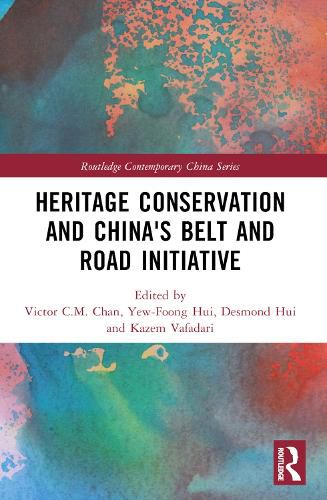Readings Newsletter
Become a Readings Member to make your shopping experience even easier.
Sign in or sign up for free!
You’re not far away from qualifying for FREE standard shipping within Australia
You’ve qualified for FREE standard shipping within Australia
The cart is loading…






This book explores how China's Belt and Road Initiative through promoting a non-Western-centred geopolitical narrative is affecting the conservation and management of Belt and Road heritage sites. Considering the dynamics between academics, heritage professionals, and government officials, the inscription process and management of Silk Roads heritage sites, and the practice of China's Belt and Road heritage diplomacy, the book examines how changing heritage conservation practices are influenced by politics and professionalism and negotiated in different ways across different nation states in the Belt and Road zones. Highlighting the different aims and outlooks of Chinese diplomacy, UNESCO and other international heritage conservation organisations, nation states as guardians of national interests, and local communities as custodians of everyday lived heritage, it shows how the Belt and Road Initiative has energised multilateral efforts in heritage diplomacy and management. It also discusses how the 'professional' status of heritage professionals, including practitioners engaged by governments and international organisations and also scholars and researchers who provide consultancy advice, is often not politics-free, with heritage professionals often co-opted into speaking for stakeholders, especially national governments.
$9.00 standard shipping within Australia
FREE standard shipping within Australia for orders over $100.00
Express & International shipping calculated at checkout
This book explores how China's Belt and Road Initiative through promoting a non-Western-centred geopolitical narrative is affecting the conservation and management of Belt and Road heritage sites. Considering the dynamics between academics, heritage professionals, and government officials, the inscription process and management of Silk Roads heritage sites, and the practice of China's Belt and Road heritage diplomacy, the book examines how changing heritage conservation practices are influenced by politics and professionalism and negotiated in different ways across different nation states in the Belt and Road zones. Highlighting the different aims and outlooks of Chinese diplomacy, UNESCO and other international heritage conservation organisations, nation states as guardians of national interests, and local communities as custodians of everyday lived heritage, it shows how the Belt and Road Initiative has energised multilateral efforts in heritage diplomacy and management. It also discusses how the 'professional' status of heritage professionals, including practitioners engaged by governments and international organisations and also scholars and researchers who provide consultancy advice, is often not politics-free, with heritage professionals often co-opted into speaking for stakeholders, especially national governments.